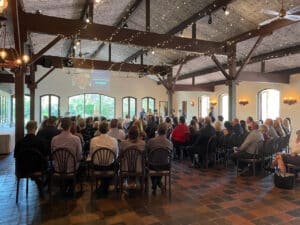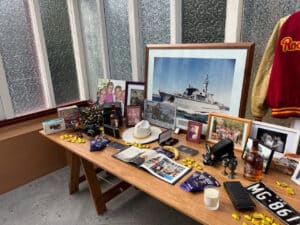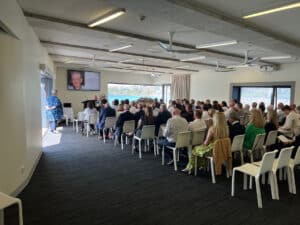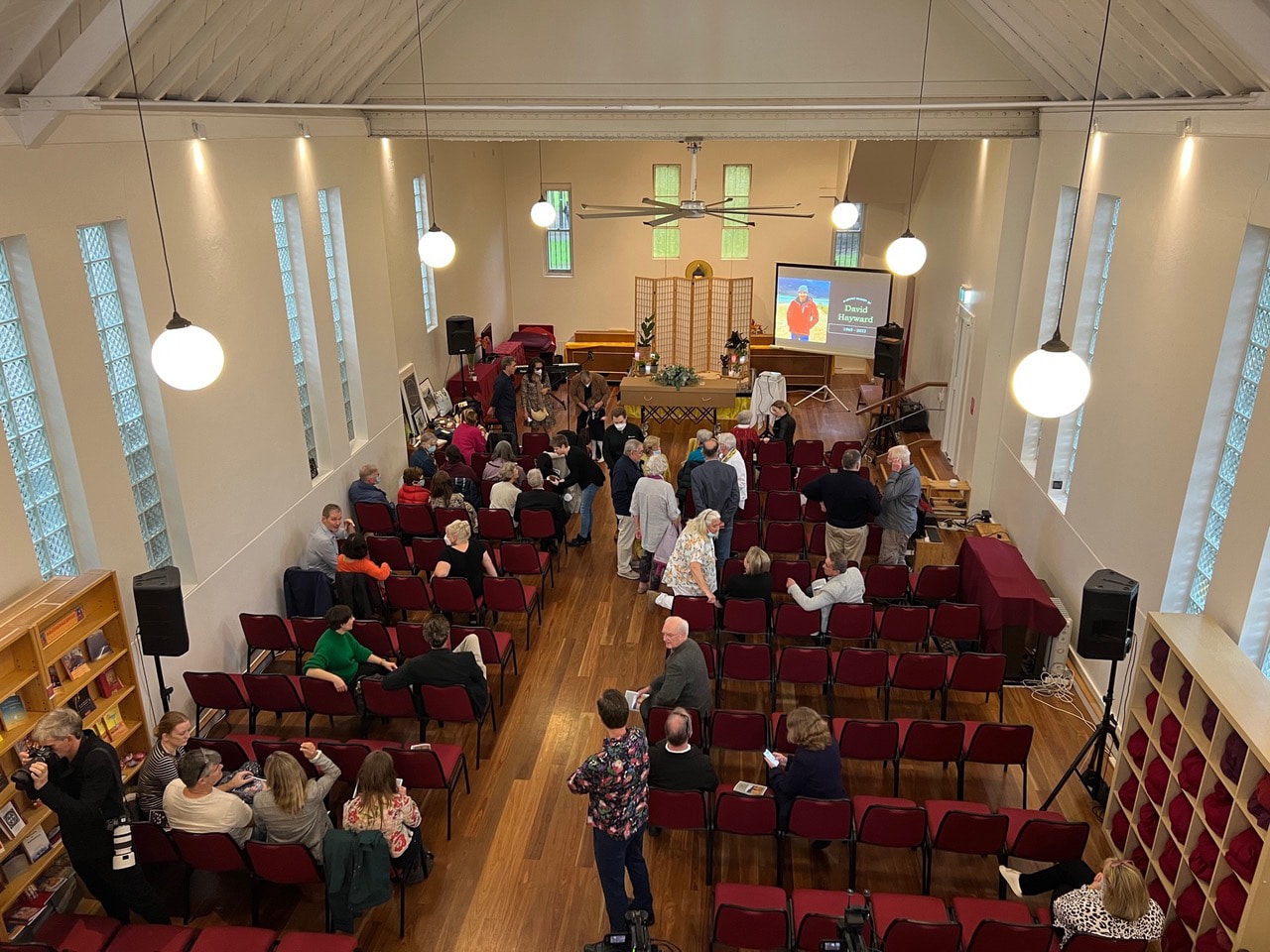From the time of recorded history, ceremonies have been used to acknowledge the loss of loved ones. With every culture, we can always find ways of honouring the dead.
Ceremonies symbolically connect us to things that are considered meaningful. The rituals found in the ceremony help create structures to bring us comfort, express our emotions, or bring about closure. These actions also help keep the memories alive.
From birth to death, we have always marked each milestone with certain ceremonies. There are baptisms, graduations, marriages, and funerals as well as memorials.
But why are ceremonies so inherently important to us? Experts in sociology and anthropology believe that humans need to undergo acts that eventually help process the grief of losing a loved one.
Counsellors also consider the process to be more poignant when enacted in a communal setting. There are several reasons why ceremonies are important in helping us cope with loss or death, and here are some of them.
Ceremonies Provide Structure and Stability
In the chaos of early grief, it can be difficult for many people to navigate around this emotional landscape. Even if there have been consecutive deaths, each experience is intrinsically unique and challenging to undergo.
With so many decisions resting on the immediate family, elaborate approaches to a funeral service can result in a state of disarray. The bereaved typically are unable to figure out the best ways to help them cope with death.
When this happens, the funeral directors and highly experienced funeral celebrants at Picaluna Funerals help them fill the need. As a result, the bereaved end up with meaningful rituals and tributes during a time when they are overwhelmed emotionally.

Ceremonies Help Acknowledge Loss
While people can see the reality of their loved one’s death, not everyone can accept it emotionally. One may hold the death certificate in one’s hands, but it can take great effort to acknowledge the loss.
For many, the death of a loved one requires time to fully process and accept. Sometimes, it requires us to undergo counselling in order to move past the stages of grief.
Since the acceptance of loss and death is not always instant, meaningful ceremonies at appropriate funeral venues provide the right settings to help ease the transition. As one step is made, it becomes easier for the bereaved to take the next step, which is why Picaluna Funerals looks for venues that aren’t always considered typical funeral venues.
Ceremonies Support Legacies and Memories
When a loved one passes on, we tend to remember their values. With the help of the right Funeral Celebrant, by selecting words and rituals to describe and highlight their character qualities, we celebrate their positive contribution to our lives, their families, and the community.
These are sometimes called life celebration funerals, where the bereaved recall the wonderful moments of their lives spent with the deceased person. While conventional funeral services tend to be more formal, non-traditional funeral services are more personal.
The new ways of celebrating the life of the dead create a legacy among the living. Plus, sharing the positive impact allows people to pay tribute, while encouraging those present to emulate the commendable traits of the deceased.
We understand and value highly skilled and well trained Funeral Celebrants, with many of our Picaluna Celebrants going through training courses like The Funeral Fix, which offers in-depth training to Funeral Celebrants that deepens their skills, so they’re able to serve you at the highest level.

Ceremonies Assist in Moving On
Since funerals help people acknowledge the loss, they also assist in helping take another step toward acceptance and healing. Memorials, in particular, remind us of how things have changed, and yet life still must go on.
Memorials help us move to the next stage where the loss is recognised, even if not fully accepted. Whether it is an outside funeral or a cremation with funeral service, these ceremonies play their roles.
Funeral ceremonies help lessen our anxiety and calm our troubled, grief-stricken thoughts. By saying the last farewell to our loved ones, we begin to accept their absence in our lives.
Ceremonies Remind Us to Prioritise
When life ends, whether abruptly or not, we are painfully reminded of our impermanence. The realisation of life’s fragility can prompt us to do the things that matter to us.
Sometimes, it could be as simple as pursuing a passion that we’ve long ignored. Other times, it could be more practical such as making more time for the people we love.
Whether the profound awareness is life-changing or not, we are reminded of how time is fleeting and how much we still have to appreciate. Knowing that our time is finite can spur us into taking action; in prioritising the people, events, and goals in our lives.
How to Utilise Ceremonies for Healing
There are some rituals that we can use to help us grieve, acknowledge, and accept the loss of our dearly departed. Grief rituals, as they are commonly known, provide us with opportunity to honour the departed while engaging in self-transformation processes in order to move deeper into healing.
Most grief rituals are simple, while others are more personalised and elaborate. Since it purely depends on the affected people, here are some ways that our highly experienced Funeral Celebrants use ceremonies and rituals for therapeutic purposes.
Visiting the Deceased
This is one of the most straightforward ways to confront the loss of someone important to you. While the sight of your loved one in a coffin can be jarring, we offer viewings in and out of the casket or coffin, to help you acknowledge your person’s death and begin the process of acceptance as we walk toward emotional and mental healing.
Allowing Moments of Silence
Some grieve openly while others mourn in silence. There are no set standards for grieving, so we should allow ourselves to grieve in the best way we can. Having pockets of silence can be incredibly therapeutic for many as these moments allow their minds to drown out all the inner turmoil and mental chatter.
Doing Nothing
There are people who spring into action just to make sure all funeral plans go accordingly. There are others who are yet unable to process the grief so they do nothing. While keeping busy can be one way to be distracted, it doesn’t work all the time. Sometimes, we just have to cope with loss by doing absolutely nothing and that’s perfectly fine.
Attending the Funeral
Whether it’s a natural burial or direct cremation, the funeral aspect of the ceremony can bring with it a sense of finality. When we attend a funeral or memorial service, we slowly start to acknowledge the death of our loved ones. When we do that, we begin our process of healing.

Participating in Life Celebrations
Sometimes, we are so caught up in the loss that we forget the contributions that the deceased left with us. They can be in the form of memories, invaluable advice, and life learnings. It won’t matter if the celebrations take place in an outdoor funeral or as part of cremation funeral services. What truly counts is the legacy of the departed and their impact on each funeral celebrant.
Planning a Memorial Service Program
Some people find it quite healing to make funeral plans for the deceased. This can include funeral live streaming, where people from other countries can participate online. A live stream funeral service is also a good way to bring more people to honour the deceased person, especially when they are unable to visit funeral wake venues in person.

Scattering Ashes Ceremony
When a direct cremation is selected, then scattering the ashes of our loved ones is immensely cathartic. There are times when it is hard to let go of our special person physically, and cremation services are ways we can finally accept the loss. The ashes can be scattered in private spaces or allowed to travel in the wind or water.
Transferring and Keeping the Ashes
We can keep a portion of the ashes with us, even if we decide to scatter most of it. Urns are some of the best ways to hold on to the ashes of our loved ones. With the cremation cost lower than traditional burials, we can spend a bit more on containers or vessels that will keep the ashes of the departed safe and secure while being highly aesthetic. We have a selection of beautiful, hand-crafted urns available for our families, including these options from The Urn Collective.
Planting Trees in Remembrance
There are some companies that offer reactivation of nutrients so that toxic ashes may be buried next to trees. Other options are using biodegradable urns to make the legacy of the departed last for generations. Not only will the living tributes positively impact the environment and society, but they also bring in loving memories in the form of legacies. Connecting with Living Legacy Forest will enable you to understand the behavior of ashes within the soil. They can also help advise around what is best practice for managing the life of the tree.
Wearing the Ashes
Urns, while portable, don’t ensure that our loved one’s ashes are constantly near. Keepsake pieces of jewellery provide this need, with some companies turning the ashes into diamonds. There are others that capture ashes within the gems on jewellery.
The Key Takeaway
The loss of a person you know is difficult for many. Whether through cremation or burial, it is important that we learn to acknowledge their absence from our lives. This helps us navigate our way through our grief and into acceptance of the death of our loved ones.
While it is not always smooth or easy, it is important for us to go through rituals and ceremonies to begin the process of healing. When we step out of grief and hold space for ourselves and others, we move forward toward greater healing while honouring the memories of the departed.





